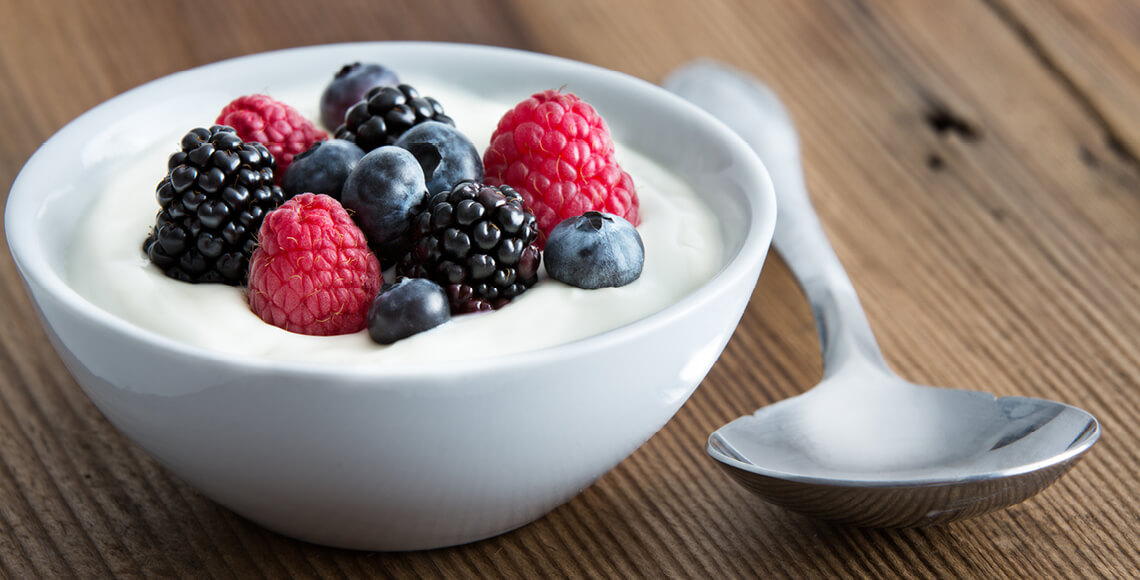A New Reason to Eat Yoghurt
Yoghurt is one item you won’t have trouble locating in your local grocery store. Hit the dairy aisle and rows and rows of colourful tubs of yoghurt will catch your eye–regular and Greek, a multitude of brands, and flavours from plain to passionfruit. We’re crazy about yoghurt.
And that’s a good thing. It’s a top source of bone-building, osteoporosis-preventing calcium. A typical 170g container of plain nonfat yoghurt contains 338 mg, roughly a third of your daily requirement (1,000 mg for women 50 and under; 1,300 mg for women 51-plus). Yoghurt is also one of the best sources of probiotics, which are bacteria that can help you maintain healthy digestion, as well as other benefits. In fact, researchers newly suspect that the probiotics in yoghurt may help lower your risk of diabetes. Startling news isn’t it? But, let’s take a quick look at the research.
The dairy-diabetes connection
Some studies have suggested an association between dairy consumption and prevention of metabolic syndrome, which is when a person has three or more of the following: a large waist (above 88cm for women), high blood triglycerides (fat), low HDL (good) cholesterol, systolic blood pressure (top number of 130 mm Hg or greater or diastolic blood pressure (bottom number) of 85 mm Hg or greater, and a fasting glucose (blood sugar) level of 100 mg/dL or more. Metabolic syndrome increases the risk of developing type 2 diabetes and cardiovascular disease.
Researchers at Harvard and Brigham and Women’s Hospital wanted to explore which dairy foods might have the most preventive effect against type 2 diabetes. They examined data collected over several years from 41,436 men and 153,022 women, and they discovered that drinking milk appeared to have no effect but that eating yoghurt was associated with a lower risk for type 2 diabetes. The researchers went on to combine these results with several previous studies, and their analysis showed that eating an additional 225g serving of yoghurt a day was associated with an 18 percent lower risk of type 2 diabetes. Why yoghurt? Speculation is that yoghurt’s probiotics may be the agents at work here.
The Harvard scientists acknowledge that this study looked at patterns in populations and that randomised controlled trials designed to determine cause and effect need to be done to confirm yoghurt’s protective effect.
Ways to enjoy yoghurt every day
Though the research did not have data on types, brands, flavours, or fat content of yoghurt, lead researcher Mu Chen, PhD suggests nonfat over whole fat.
Whether to help prevent osteoporosis, aid digestion, possibly help prevent diabetes, or simply because you love it, here are a few delicious ways to make yoghurt a regular in your diet:
Yoghurt parfait: layer fat-free plain or flavoured yoghurt with mixed berries and top with 1 tablespoon of low-fat granola or sliced almonds.
Yoghurt dip: mix fat-free plain yoghurt with dill, chopped cucumber, garlic, pepper, and a squeeze of lemon and serve with veggies
Yoghurt smoothie: blend together fat-free plain or flavoured yoghurt and diced fruit like peach, mango or a handful of mixed berries. For a thinner consistency, add a couple of tablespoons of fat-free milk, and for a touch more sweetness, add a teaspoon of honey.
Enjoy!







